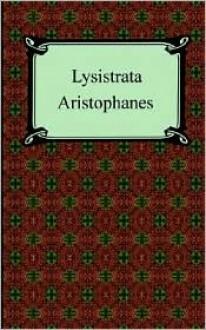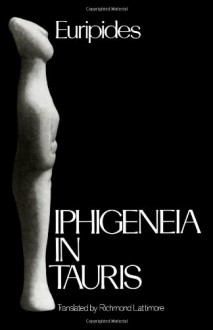
This play is so messed up that a part of me says that it has to be based on true events. It is sort of like one of the arguments that people use regarding the authenticity of the Bible: every character (with the exception of Jesus Christ) is so flawed that one cannot consider that the stories have been made up. In particular we see the heroes of the Israelite nation, that being Abraham, Moses, and David, warts and all. However when us consider the Grecian myths we suddenly discover similar things here.
The story of Oedipus is that his parents received a prophecy that their child would kill his father and marry his mother, Laius, Oedipus' dad, and king of Thebes, pinned the child's legs together and left him to die on Mount Cithaeron. However, unbeknownst to him a shepherd found the boy, took him into his care, and then sent him to the city of Corinth to be raised by the king and queen there. However, years later when Oedipus had come of age, during a feast a man got too drunk and blurted out that Oedipus' parents weren't his true parents. Despite their pleading Oedipus left Corinth and travelled to Delphi to ask the oracle the truth. The Pythian Oracle, as usual, did not give him a straight answer and simply repeated the prophecy to Oedipus. As such, he decided not to return to Corith but to flee so as not to kill whom he believed where his parents.
However on his way out of Delphi he is confronted by a rather arrogant man who demanded that Oedipus move out of the way. Oedipus tells him to bugger off and a fight ensures resulting in Oedipus' victory. He then arrives at Thebes while the city is being tormented by a sphinx who has a riddle that nobody knows the answer, but Oedipus correctly guesses it, kills the sphinx, and when word is brought about Laius' death Oedipus marries Jocastra, and lives happily ever after.
Actually they don't because without realising it the prophecy has been fulfilled. Further a great crime has been committed, and since a father murderer is living in Thebes the entire city is struck with a plague. Oedipus, who has become king, and is the hero of the city, decides to investigate. However his investigations quickly uncover a truth that is hidden from him and upon learning of this truth, namely that he killed Laius, who turns out to be his father, and married his wife, Jocastra, who turns out to be his mother, he is struck with the guilt of what has come about, Jocastra kills herself and Oedipus rips out his eyes and exiles himself from Thebes.
Well, I have just told you the plot of the play without actually saying anything about the themes in the play. Well, there are two reasons why I outlined the plot, one being that it is a very complicated plot, and secondly to demonstrate how messed up everything is. This is not a simple Hollywood plot where everything is resolved in the end and everybody goes away happy. In fact it does not seem that there was really anything that Oedipus could have done to get himself out of the mess that he found himself in. In fact it seems that the more he attempts to get out of it the deeper the hole that he digs for himself, but it is not as if he could avoid doing it. He flees because he doesn't want the prophecy to come true, but there is a lot that he does not know and a lot that he is not being told. His step parents are not telling him the truth, and in hiding the truth, they are also making the prophecy come true. As for Laius, once again, everything that he does only serves to make the prophecy come true. While he attempts to kill his son, this fails because of the compassionate nature of humanity. It is the shepherd's compassion that prevents him from leaving Oedipus alone on Cithaeron.
The essay question that I answered on this play involved the question of fate and freewill. However there really does not seem to be any freewill here. Every decision that Oedipus makes only brings the revelation closer to being revealed. As a good king he simply cannot ignore the plague, and as a good king, he cannot do anything but seek justice and cleanse the city, despite the fact that he is the root cause of the problem. Despite the curse that he calls on the perpetrator, he must suffer the punishment himself, despite the pleas to the contrary. Oedipus is a just king, but despite his actions it is only when the fog is cleared and the truth comes out that he discovers that he is the perpetrator. Hey, he didn't even realise that the guy that he encountered at the crossroads was the king of Thebes, and his father.
Aristotle in his Poetics writes that characters in a drama should have a fatal flaw, but nobody seemed to have told Sophocles that. Granted Ajax may have had a fatal flaw, but Ajax is not Shakespeare, and is dealing with an issue that has nothing to do with his character. Ajax is dealing with PTSD (though not by that name) and Oedipus does not seem to have that fatal flaw. In reality, other than killing Laius at the crossroads (though some could argue that he did so in self-defense), Oedipus has done nothing wrong. In fact, if he had not investigated the cause of the plague then he would have been negligent. No, it is not Oedipus that has done anything wrong, but rather his ancestors. Laius is cursed and I believe that going up the ancestral chain further we come to a situation where an ancestor fed human flesh to another human, mostly as payback (I can't remember off hand who it was, it could have been Thyestes, but it could have been somebody else - one of Agamemnon's line is also guilty of a similar offense). In a sense then it is not the actions of Oedipus that brings about his suffering and downfall, but that of his father, and of his father's father. Poor Oedipus is only caught in the middle.
One might wonder what was so appealing about a story that everybody knows. Well, it is the same with us. When we look through the video store at all the movies available we discover that the plots of each and every one of those movies are pretty much the same. It is not the question of the plot, but how we get to the ending, and how the movie ends. We pretty much know that in around 90% of the movies available the good guys win and the hero gets the girl. We know that so we don't watch the movie for that, but rather how they get there, and how the good guys win. This was the same for the Greeks, and it is fortunate that we have versions of the Electra from the three great playwrights. In this we can see how the actual event differs and how each of the playwrights treated the subject. No doubt with Oedipus, both Aeschylus and Euripides would have explored different themes, and painted Oedipus in a different light, so that despite knowing the outcome, we arrive there through a different method.


 Log in with Facebook
Log in with Facebook 









